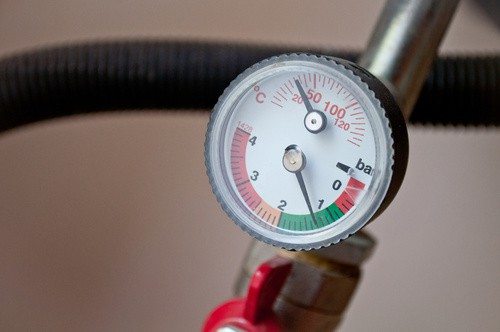Your boiler is the unsung hero of your home, quietly keeping you warm and cosy. But did you know that maintaining the right boiler pressure is crucial for its efficiency and longevity? In this comprehensive guide, Lomond Property’s Glasgow Estate Agency team delve into the importance of boiler pressure, how to check it, and why it deserves your attention.
Understanding Boiler Pressure
Boiler pressure refers to the balance between water and air within your heating system. It is measured in bars and is a key factor in ensuring your boiler functions optimally. Too much or too little pressure can lead to performance issues and potential damage.
Why is Boiler Pressure Important?
- Efficiency:
- Proper pressure ensures that your boiler operates efficiently, providing consistent heating throughout your home.
- Maintaining the right pressure allows the system to distribute heat evenly, preventing cold spots and optimising energy consumption.
- System Longevity:
- Incorrect pressure can strain your boiler, causing wear and tear on its components.
- Regularly checking and adjusting pressure helps extend the lifespan of your boiler, saving you from costly repairs or premature replacements.
- Safety:
- Low pressure might indicate a potential water leak, while high pressure can result in system malfunctions and even damage.
- Monitoring boiler pressure is a safety measure, ensuring your heating system operates within safe parameters.

How to Check Pressure
- Locate the Pressure Gauge:
- Most boilers have a pressure gauge, often located on the front panel. It looks like a small dial with numbers and markers.
- Check the Reading:
- The ideal pressure for most boilers is between 1 and 1.5 bars when the system is cold.
- If the pressure is below 1 bar, you may need to top up the system. If it’s consistently too high, you might need to bleed radiators or release excess pressure.
- Topping Up the Pressure:
- Consult your boiler manual to find the filling loop. Typically, it’s a flexible hose with a valve.
- Open the valve slowly until the pressure gauge reads within the recommended range.
- Bleeding Radiators:
- If pressure is too high, bleeding radiators can release excess air and water.
- Use a radiator key to open the bleed valve slightly until you hear a hissing sound. Close it when water starts flowing consistently.
Regular Boiler Maintenance Tips
- Schedule Professional Servicing:
- Arrange for an annual boiler service by a qualified technician to ensure all components are working correctly.
- Monitor for Leaks:
- Check for any signs of leaks around your boiler and heating system. Address any issues promptly.
- Educate Yourself:
- Understand your specific boiler model by reading the manual. Different systems may have unique pressure requirements.
Lomond Property Conclusion
Taking a proactive approach to boiler pressure is a small yet significant investment in the longevity and efficiency of your heating system. By understanding how to check and maintain the right pressure, you can ensure a warm and comfortable home for years to come. Regular attention to your boiler’s well-being not only saves you money but also contributes to a safer and more energy-efficient household.
Thinking of moving home? Every dream house move begins with knowing the value of your own home.








